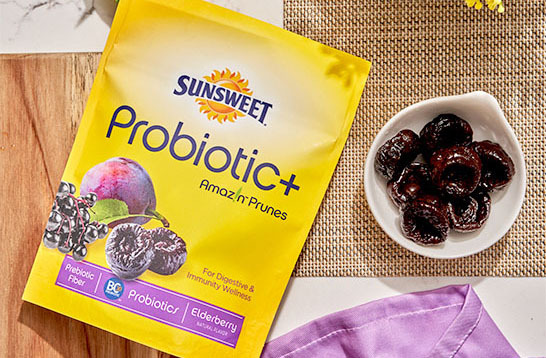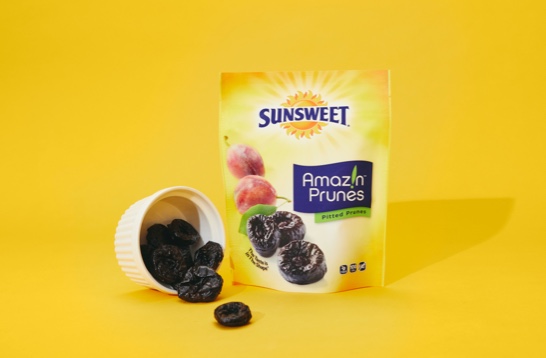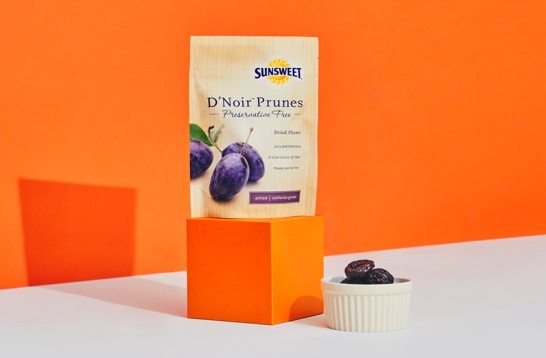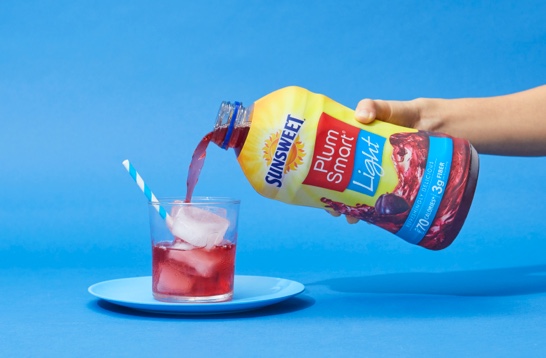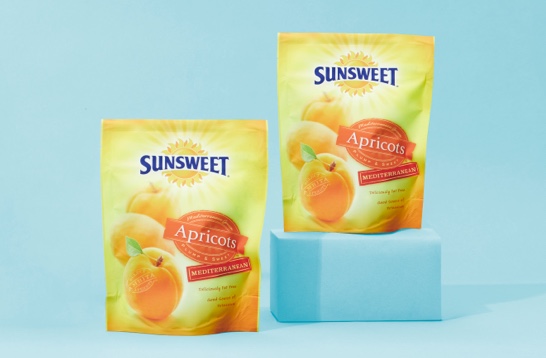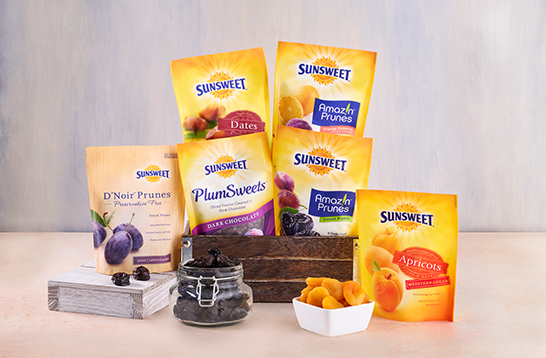Why Prune Juice Works
Mothers are often advised by pediatricians to use it, pregnant women turn to it to ease pregnancy symptoms, and the elderly faithfully consume it. But what makes prune juice so effective? Keeping digestive problems at bay can be a challenge; yet for nearly 100 years, Sunsweet® Prune Juice has been the trusted remedy to help alleviate irregularity.
Naturally Nutritious
Make Sunsweet Amaz!n™ Prune Juice a regular part of your daily health routine – no preservatives, no added sugar, just 100% juice made from sun-sweetened prunes. Ingredients found naturally in prunes, such as fiber and sorbitol, provide a mild laxative effect. Additionally, potassium and magnesium contribute to the maintenance of a healthy bowel. Let’s take a closer look:
Fiber
Dietary fiber is a term used to describe the non-digestible carbohydrates found in food substances which are important for potential health effects. A diet high in fiber is well-recognized for its role in supporting a healthy digestive
system. High fiber foods were once thought to be exclusive to whole grains, legumes, fruits and vegetables; however, now more than ever, consumers are turning to fiber supplements and foods with fiber as additional fiber sources. Store shelves are stocked with juices and products with “added fiber” which can lead to even more confusion.
Breaking Down Fiber
Both soluble and insoluble fibers contribute to the health benefits found in prune juice, so let’s break it down:
- Soluble Fiber: Instead of giving a coarse texture to food, soluble fibers such as those in oat bran, dissolve to become gummy or viscous. Gums and pectin are types of soluble fiber.
- Insoluble Fiber: This group is known as “roughage.” They move waste through the colon, decrease transit time and reduce the time that potentially harmful substances in food waste linger in the intestines. Insoluble fibers hold onto water and they move waste through the intestinal tract without being digested themselves. Examples include cellulose, hemicellulose, and lignin.
According to the Academy of Nutrition and Dietetics (AND) -formerly the American Dietetic Association (ADA) - “the addition of purified dietary fiber to foodstuffs is less likely to be beneficial as opposed to changing American diets to include whole foods high in dietary fiber. The concept of synergy among components in whole foods and the overall healthfulness of a varied diet are important aspects.” (AND Position Paper: Health Implications of Dietary Fiber, 2008).
As a whole food, prune juice aligns with the AND’s recommendations. It contains a natural source of fiber with one standard serving (8oz) containing 3 grams, which provides 12% of the Daily Value (DV) of dietary fiber.

Sorbitol
Although fiber may be more commonly associated with digestive health, sorbitol, a much less familiar nutrient, plays an integral role as well. Prune juice naturally contains high levels of sorbitol, a sugar-like substance similar to glucose. However, unlike glucose, sorbitol is absorbed slowly into the blood which allows it to hold water, increasing the moisture content of the stools, leading to easier passage from the body. Prunes and prune juice are unique in that the sorbitol content is much higher than that of other seemingly similar fruits and fruit juices. Differences in the fruit’s phytology, as well as differences in processing technology, influence the final pattern of sugar distribution in dried fruits (Stacewicz-Sapuntzakis, 2001).
Evidence suggests that sorbitol causes a laxative action. A dose of 25 grams of sorbitol was effective in 12 individuals to cause a laxative effect (Stacewicz-apuntzakis, 2001) and a cup of prune juice provides 10.5 grams of sorbitol. An additional study concludes prune juice may offer an alternative to laxatives, at least in cases of mild constipation (Piirainen et al, 2007).

Potassium and Magnesium
When coupled with fiber and sorbitol, these minerals also contribute to maintaining good digestive health. Potassium and magnesium work together to help regulate muscle contraction and relaxation of the digestive tract. Prune Juice contains 430mg of potassium per 8oz serving which provides 12% of the Daily Value. In addition, studies suggest that potassium may play a role in helping support cell energy by regulating fluid balance, nerve impulses and muscle contraction to increase energy. (Ehrlich, NM)
The 2015 Dietary Guidelines for Americans highlight fiber and potassium as two nutrients of concern that Americans need to eat more often. Prune juice is a good source of both fiber and potassium. With the digestive-friendly ingredients of fiber, sorbitol, potassium and magnesium, Sunsweet Amaz!n Prune Juice is a natural fit for a healthy lifestyle.
Position of the American Dietetic Association: Health Implications of Dietary Fiber, J Am Diet Assoc. 2008;108:1716-1731.
Position of the Academy of Nutrition and Dietetics: Health Implications of Dietary Fiber. Journal of the Academy of Nutrition and Dietetics. 2015:115(11).1861-1870.
Stacewicz-Sapuntzakis M, Bowen P, Hussain E, Damayanti-Wood B, and Fransworth N. Chemical Composition and Potential Health Effects of Prunes: A Functional Food:, Critical Reviews in Food Science and Nutrition. 2001;41(4):251-286.
Piirainen L, Peuhkuri K, Backstrom K, Korpela R, and Salminen S. Prune juice has a mild laxative effect in adults with certain gastrointestinal symptoms, Nutritional Research. 2007; 27(8):511-513. Ehrlich, NM. D. SD, Private Practice Specializing in Complementary and Alternative Medicine, Phoenix, AZ.



